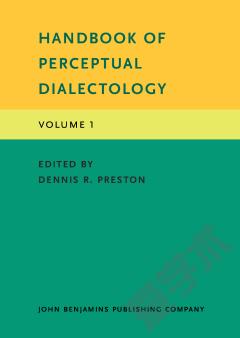Handbook of Perceptual Dialectology. Volume 1.
Perceptual dialectology investigates what ordinary people (as opposed to professional linguists) believe about the distribution of language varieties in their own and surrounding speech communities and how they have arrived at and implement those beliefs. It studies the beliefs of the common folk about which dialects exist and, indeed, about what attitudes they have to these varieties. Some of this leads to discussion of what they believe about language in general, or “folk linguistics”. Surprising divergences from professional results can be found. For the professional, it is intriguing to find out why and whether the folk can be wrong or whether the professional has missed something.Volume 1 of this handbook aims to provide for the field of perceptual dialectology: • a historical survey; • a regional survey, adding to the earlier preponderance of studies in Japan, the Netherlands, and the United States; • a methodological survey, showing, in detail, how data have been acquired and processed; • an interpretive survey, showing how these data have been related to both linguistic and other socio-cultural facts; • a comprehensive bibliography.The results and methods of perceptual dialectical studies should be interesting not only to linguists, variationists, dialectologists, and students of the social psychology of language but also to sociologists, anthropologists, folklorists, and other students of culture as well as to language planners and educators.
{{comment.content}}








 京公网安备 11010802027623号
京公网安备 11010802027623号